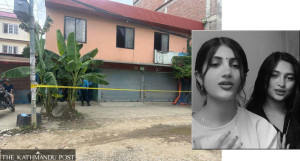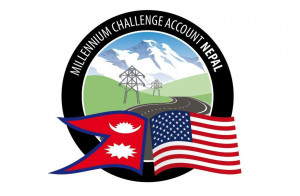National
Prime Minister Oli urges NRNA to remain united and dignified
Says disputes, personal interests, and political interference harm the organisation’s mission.
Post Report
Prime Minister KP Sharma Oli on Wednesday called on the Non-Resident Nepali Association (NRNA) to remain united, dignified, and focused on its founding objectives.
Inaugurating the ‘NRNA Global Conclave’ in Kathmandu, Oli said the organisation should not deviate from its mission and warned against divisive tendencies driven by narrow interests. He urged all members to abandon factionalism and work collectively towards unity.
“It is inappropriate to have disputes within such a common platform. An organisation cannot function by changing its statute to suit individuals. When conventions turn into battlegrounds, it sends the wrong message,” Oli said.
“This platform must not become a place for pursuing personal gains. You must not stray from the noble goals of protecting the interests of the diaspora, promoting Nepali identity and culture, and contributing to Nepal.”
Oli stressed that partisan politics have no place in the association and efforts to divide it will not succeed. He assured that the government would stand by the NRNA on issues conducted in accordance with the law.
Referring to the current leadership, he affirmed that Badri KC remains the legitimate president of the organisation and expressed confidence that the leadership transition would take place through a democratic and lawful convention.
He also said the government is committed to amending laws related to non-resident Nepalis based on feedback received.
The NRNA’s unity convention on May 4 unanimously elected a new executive committee under the leadership of Mahesh Shrestha. However, the executive committee led by Badri KC—elected during the 11th International General Assembly—did not participate in the unity convention.
Founding president Upendra Mahato and other founding members were also absent. KC’s faction maintains that its term lasts until mid-October 2025 and insists that the unity and regular conventions be held jointly.
The NRNA has long struggled with internal divisions. After disputed leadership elections and parallel operations by rival factions, the court had initially suspended all activities and instructed for a fresh mandate through consensus.
Though the association has historically maintained a neutral and developmental role in Nepal’s diaspora affairs, recent years have seen growing politicisation and factional interests prevailing in the organisation.




 26.36°C Kathmandu
26.36°C Kathmandu














